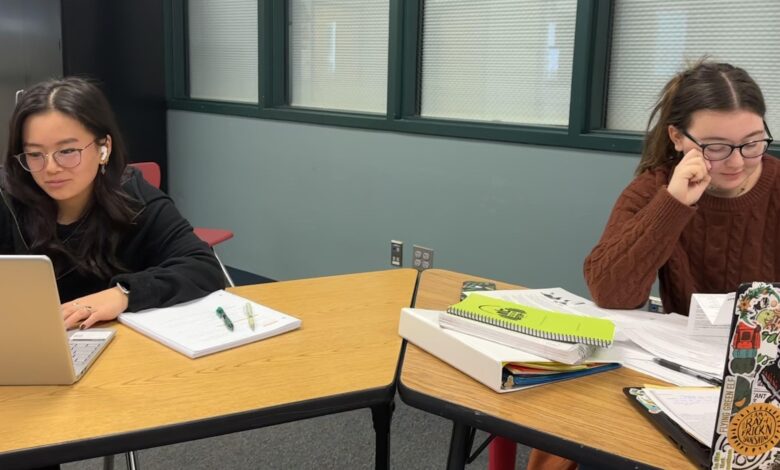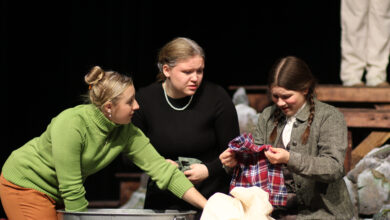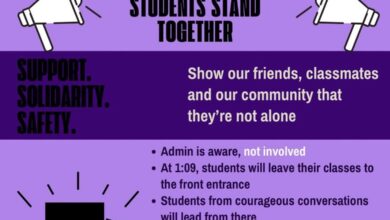Easy vs Hard Senior Year?
Two students give insight on their different approaches to senior year

Tony Leintz ‘24, just halfway into his junior year, had an important decision to make about his future. How was he going to spend his senior year? Should he take AP Calculus or Life Skills, CIS Writing and Critical Reading or Baking and Pastry, CIS Chemistry or Ceramics?
Planning a year’s worth of classes is no easy task. For seniors, one must consider post-high school plans, the workload that comes with extracurricular activities and/or work, and the infamous senioritis. Sophie Hanson ‘24 decided to take an easier year of classes in hopes of less stress.
“Last year was really hard for me,” Hanson said. “So I decided that if I don’t need to take hard classes this year, then why should I?”
Hanson rated her stress level at the end of First Trimester at a 5 out of 10. But at times, she feels it should be higher.
“It definitely should be like a 10,” Hanson said. “Because I have easier classes, it’s been harder to actually take them seriously, like actually get into things. I feel great [about my decision] because I can barely handle easy classes right now. Like, it’s bad.”
So while taking easier classes can offer a less rigorous senior year, it can also make classes difficult to take seriously. On the flip side, Leintz took a harder year of classes, hoping to get a head start on preparing for college coursework.
“I was going to go PSEO,” Leintz said. “But I didn’t really want to drive into college every day. I also didn’t want to do online classes, so I said, ‘what the heck, I’m just gonna take every college class we have to offer’ and hope it evens out and gets close enough to what PSEO would have been in terms of credits.”
Leintz put his stress level at a “solid 4” on a 10-point scale.
”But that’s more because I’m ignoring it,” Leintz said. “If you would have asked me that last week, it probably would have been around an 8 or 9. In terms of actually doing the classes, I think that it’s manageable, even with the extracurriculars I’m in. While it is difficult, I think it’s good preparation for college.”
Taking harder classes can help students feel more prepared for college coursework but at a cost. No matter the decision to take easier or more challenging classes, it can be difficult. To future students planning out their senior years, Shanlee Maher, a counselor at BHS, has a key piece of advice.
“Balance.” Maher said, “I get a lot of kids that are burnt out – and I get it, you know, especially if you’ve been continuously challenging yourself through the years.”
“Really utilizing those opportunities of taking a senior study or taking a really fun class that you’ve been interested in can alleviate some of those big-time stressors of the classes that you’re taking for purposeful rigor, college credit, or the ‘I need this for graduation’ type of thing,” she added.
For students seeking academic support, Maher suggests, “Peer coaches are available every period, before and after school, and during base time through a signup process. If you have questions talk to your counselors or friends that know how to do it, and we’ll get you signed up. In addition, a lot of teachers have office hours before and after school, and I highly recommend utilizing that.”





